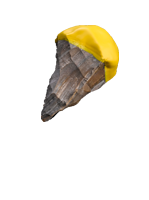The World Wide Web has shrunk the world community, enabled the sharing of ideas through near instantaneous collaboration, and has made communication virtually immediate, especially in the realm of promoting world commerce.
It has, however, created a venue for the sharing of copyright-protected works - some legal and others not. Legal systems throughout the world are seeking to address the ramifications of this phenomenon - sometimes by applying laws and theories that were not designed for modern technological issues.
Intellectual property
Intellectual property is an intangible asset. IP is protected via copyrights, patents, commercial secrets and trademarks. Intellectual property laws are intended to promote creativity by rewarding authors/creators. An important consideration for protecting IP is the encouragement of authors and creators to create new works while retaining pecuniary and other rights to those interests. Unauthorized copying therefore deprives the author of remuneration for having created her work and disincentivizes her from creating in the future.
Copyright legislation
Copyright laws were originally created to balance the protection of classical creations such as literature or art with the public’s need to benefit from those creations. Israeli copyright law is based on an eclectic combination of different legal systems, primarily the American and the British, and adopts 2 basic principles:
- economically rewarding the creator for his efforts and encouraging future creation
- acknowledging the moral value of the special relationship between the creator and her creation.
In Israel, copyrights are governed by the Copyright Law of 1911 and the Copyright Ordinance of 1924 (Tthere is a move to modernize and combine the two into a new law.). The Performers and Broadcaster Law of 1984, which protects performers (such as singers and actors) and broadcasters of television and radio transmissions, may be applicable as well.
An Israeli copyright is valid for the life of the creator plus 70 years. The protection of copyrights in Israel, unlike patents, does not require registration. The protection applies only to specific expressions and not to general ideas. Moreover, data and facts are not protected.
The Law protects creations such as literature (e.g. books, articles, newspapers, computer programs), drama (e.g. movies, choreography), music (e.g. songs) and art creations (e.g. paintings, sculpture).
Copyrights provide the creator with certain protections that enable the economic use of his creation. The most basic protection granted to the creator is the right to prevent others from unauthorized copying. Copying that violates the law does not have to be for distribution - even copying for private use can be considered a breach of copyright. Protections also apply to distribution, adaptation, public performance and rental.
Use of one of the economic rights of a copyrighted work without permission constitutes a breach of that right as does the unauthorized distribution of the copyrighted work.
The Internet
Downloading movies, music and television programs from the Internet through peer to peer file sharing services, in contrast to the purchase of rights to view or listen to the works from copyright owners, is likely to violate the rights of copyright holders and deprives the property holders of the economic benefits to which they may otherwise be entitled.
Israeli law does not yet specifically address the particulars of copyright applicability to downloading from the internet but one can assume that the legislation will be promulgated shortly - extrapolation based on current law suggests that it is problematic at best. Ultimately, the need for reform and revision to Israel’s copyright laws must be addressed in order to provide specific guidelines as to what, when and how one may “download” a copyrighted, protected work. This will encourage future innovation that will ultimately benefit both the creator and user.
Israeli law does not have an express provision for contributory infringement although general tort law theories could be applied. The U.S. Supreme Court, however, has specifically reviewed and addressed this issue - most recently in its decision of June 27 in Metro-Goldwyn-Mayer Studios Inc. et al v. Grokster, Ltd., et al. - when it held that "one who distributes a device with the object of promoting its use to infringe copyright, as shown by … steps taken to foster infringement, is liable for the resulting acts of infringement of third parties."
According to the U.S. Supreme Court, a person who actively seeks to promote or induce the infringement of copyrights can be subject to liability for the breaches of copyright.
Caveat Emptor (or promoter).
Russell D. Mayer is senior partner at Jerusalemlaw firm Schuman, Livnat & Mayer. He can be reached at mayer@slmlaw.co.il


















